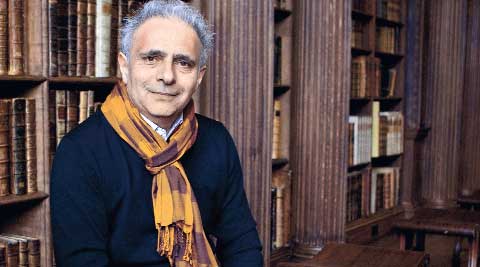Stay updated with the latest - Click here to follow us on Instagram
‘My writing is well received because it’s funny and truthful’
Hanif Kureishi on his new book, The Last Word, his ‘shocking’ last visit to India, his growing up years in punk London and why every book about two writers is not a slice of Naipaul-French’s life. Excerpts:
 Hanif Kureishi
Hanif Kureishi
You have a new novel out — The Last Word . It’s already making news for being inspired by the relationship between VS Naipaul and Patrick French.
It’s about two writers, an older and a younger. The younger one is writing a biography. It’s a savage comedy set in a country house. It’s actually much more inspired by Philip Roth’s The Ghost Writer. It’s really about writing, and many things I’ve written about before — sexuality, love relationships and two men talking.
You were in Mumbai last month for the first time in 15 years. How much of it has changed for you?
In some ways, it’s become wealthier. But that makes its poverty and despair even more shocking. Particularly for my son Sachin, who was visiting India for the first time. He had never seen people living on the street. It is quite horrifying that in today’s day and age, people can’t be provided with homes and electricity, or even clothes.
This is also a special trip because you are here with one of your three sons, Sachin (the other two being Carlo and Kier). Besides talking shop at a literature festival, you’ve been hitting the clubs and the high streets.
It was lovely to spend time with him alone, since he is a twin. The next time I’ll bring Carlo. We did some shopping on Linking Road and went clubbing. We went to some incredibly wealthy, dictator-chic parties in Mumbai. The obscenity and vulgarity is shocking. We went to a club in Bandra that was next to an open sewer, and people lived by the entrance of the club. Sachin said it was medieval to see naked and crippled people in cities, Europe was like that in the 13th century.
Thanks to your literary heritage, few people remember you began by writing pornography.
London in the Seventies was a very different place. It was rather punk. Back then, my friends and I were involved in a lot of strange things, we were all hustling on the fringes of bohemian life in London. It was quite wild and rough, and we did what we did to get by.
Your books are celebrated as some of the finest writing of the diaspora. Do you see yourself as an immigrant (even though your father had migrated and you were born in England), or do you have a ‘propah’ British perspective?
I never saw myself as an immigrant, my father was an immigrant. I was born outside London. I never went from one place to another. I went to school and university in London. But my background was that of an immigrant’s family. The part of multi-culturalism, multi-racialism, I was among the first to write these stories. My Beautiful Laundrette and (Salman Rushdie’s) Midnight’s Children were the first writings about the so-called “Third World”. But we did it from our own perspective. I am a British Asian writer.
Do you ever say that you are of Indian origin or Pakistani? How are both received in England today?
My writing has been well received. One, because it’s funny. Two, because it’s truthful. It was personal, the subject is often me. But multi-cultural writing has to have new voices. John Osborne’s Look Back in Anger had a tremendous impact on British writing. This is how culture develops.
How were your growing-up years in England different from your sons?
There was much more racism. We were much poorer. The culture that I grew up in was much greater, in a sense, and more alive. We were taking pictures, making stories, being in bands. We were working outside the system. We never thought we would get straight jobs in the real world. My sons have a better education and a better standard of living.
There is such an obvious bent towards underground and subaltern cultures in your writings (My Beautiful Laundrette, The Black Album), especially music, drugs and sexuality. How much of this is autobiographical?
This is what London was post the Sixties. In the Seventies, the drugs were harder, the music louder and things were generally more accelerated. This was the period after peace and love and before Thatcher. This is what British suburbia was about.
Did you anticipate the rise of the British jihad with My Son, the Fanatic?
They had been around and I had interviewed many people. No one was really writing about them because it was still small and brand new. But I was interested in all sorts of ideologies, my friends had been Maoists, Communists and all. I was interested in knowing why people believe what they believe. The sheer hatred, the fascist hatred was shocking to me. They were xenophobes, homophobes, anti-Semitic, anti-liberal. It was all irresistible to an artist.
At almost 60, you are now busier than ever. You have a new film out, called Le Weekend, starring Jim Broadbent.
It’s about a couple in their sixties, vacationing in Paris for their 30th wedding anniversary. They are trying to see if they really want to be with each other. She wants to leave him. He loves her, has lost his job and wants her to take care of him. The movie asks the question why we get married and how we get through it.
Have you read any new Indian authors? If yes, who did you like?
I haven’t read much fiction. I read a bit of poetry and a bit of philosophy. But someone recommended Jeet Thayil’s Narcopolis. He is a good friend and a terrific writer.








